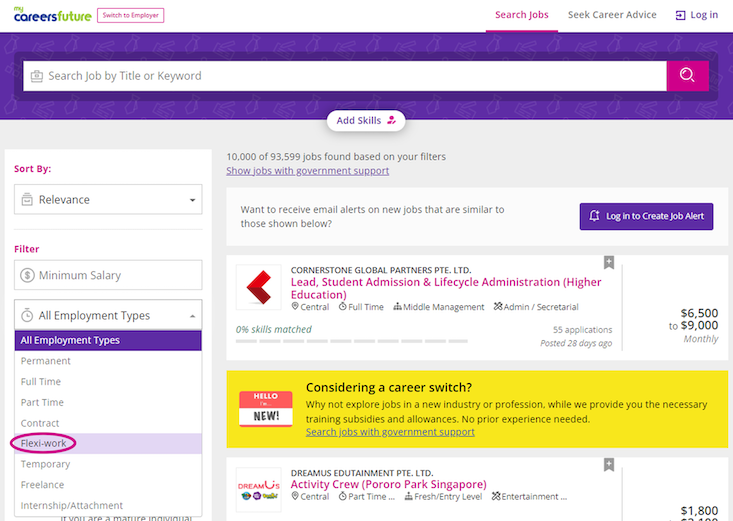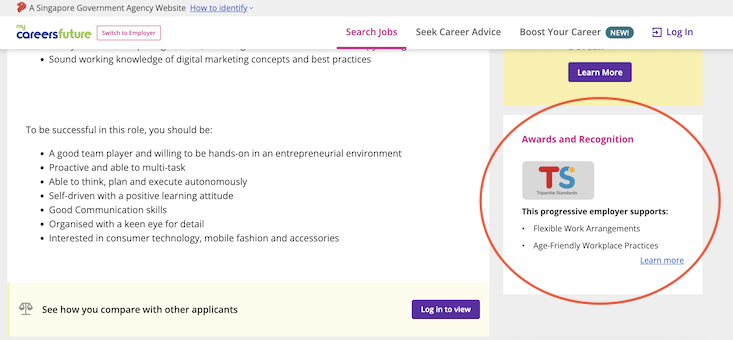Job hunting in your 40s can be challenging, especially with the added responsibilities of supporting a family, managing household expenses, and possibly caring for elderly parents. In addition, the anxiety of waiting for responses from employers can take a toll on your mental and emotional health.
However, with the right approach and mindset, you can navigate this period more smoothly and maintain a healthy work-life balance. Here are some tips to help you stay focused, manage stress, and increase your chances of finding the right job opportunity.
1. Establish a structured schedule
A structured schedule is essential to maintaining control and productivity during your job search. A well-organised timetable not only keeps you focused but also helps prevent the onset of depression due to prolonged periods of unstructured time.
For example, mornings can be dedicated to job search activities such as updating your resume, researching companies, and sending out applications, while afternoons can be for activities such as digital networking, attending workshops, networking events, or programmes designed for jobseekers. Evenings are for rest or spending quality time with family.
2. Plan your finances
Creating a financial plan is crucial during a job search, especially if you’re without a steady income. Financial experts recommend having an emergency fund that covers at least six months of expenses.

However, if you don’t have such a fund, assess your monthly essential expenses, including rent or mortgage, groceries, utilities, insurance, and education costs. Identify areas where you can cut back, such as opting for more affordable dining options and using public transportation instead of taxis.
Free budgeting apps like YNAB or Goodbudget can help you track and manage your expenses efficiently, allowing you to stay within your budget and possibly save money for future needs.
3. Seek professional career guidance
If you’ve been job hunting for a while without success, consider seeking help from a career coach. Career coaches can provide personalised guidance, help you refine your job search strategy, and offer support during this challenging time.
Before meeting with a career coach, clarify your job preferences, industry interests, salary expectations, and other key factors. This will help your coach provide more targeted advice.
Look into services like Workforce Singapore’s Career Matching Services, in which career coaches can offer insights into the roles and responsibilities of potential jobs and help you make informed decisions. They can also guide you on upskilling opportunities to enhance your employability.
4. Focus on career health and upskilling
Maintaining career health is about staying relevant and competitive in your field. In Singapore’s skills-first economy, continuous learning is vital. Enrol in online courses or workshops to learn new skills or enhance existing ones.
Platforms like Coursera, LinkedIn Learning, and Udemy offer a wide range of courses. Obtaining certifications that are highly valued in your industry can give you an edge over other candidates.
5. Embrace flexible work arrangements
In today’s job market, flexible work arrangements are becoming more common and can provide a steady income while allowing you to balance personal responsibilities. Explore job listings that offer flexible hours or remote work options.
The MyCareersFuture jobs portal offers a more convenient and quicker way to look for flexible work. All it takes is just one click.

Under the “Filter” options, simply select “Flexi-work” in the drop-down box for “All Employment Types”. Voila! You will be served with a list of jobs with flexible work arrangements. Browse through the job openings then apply when you’re ready!
On some job postings, you may find the TS logo on the bottom right-hand corner of the page. This means that the employer posting the job is an employer who has adopted the Tripartite Standard and is committed to building a better work environment for its employees. It also has good employment practices that meet the requirements of the Tripartite Standards.

6. Maintain a positive mindset
Job searching can be stressful, but it’s important to stay positive and patient. Set realistic goals by breaking down your job search into manageable tasks. Staying connected with friends, family, and former colleagues can provide invaluable support during this time.
Make time for activities that you enjoy and that help you relax, such as reading, gardening, or practising mindfulness. Self-care is crucial in maintaining a positive mindset.
Job searching can be challenging but trust the process
By following these tips, you can manage job search stress more effectively and increase your chances of finding the right job. Remember, this is a temporary phase, and with perseverance and a positive attitude, you will find a new opportunity that aligns with your skills and goals.















